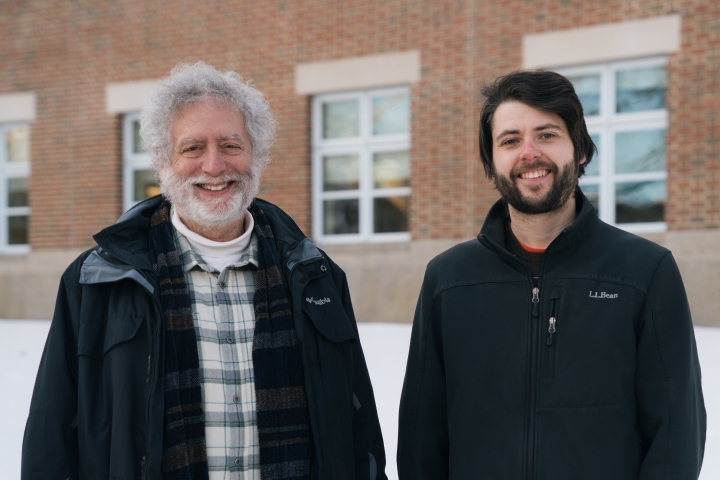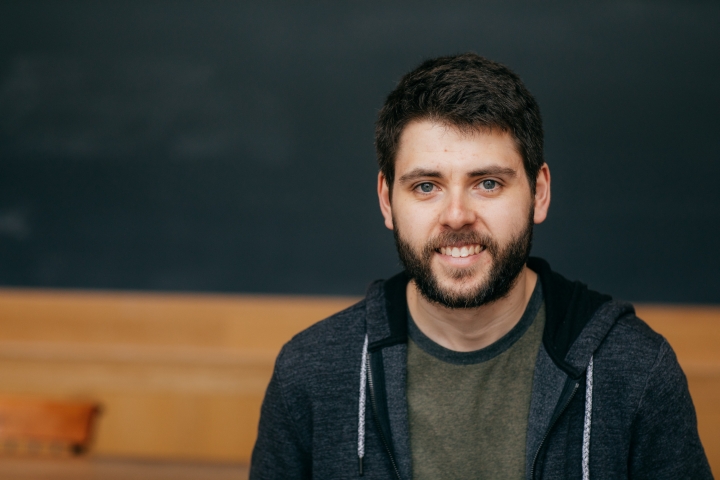Postdoctoral researcher Patrick LaChance, Guarini ’22, has won the 2023 Donald B. Lindsley Prize in Behavioral Neuroscience awarded by the Society of Neuroscience.
The award, which recognizes an outstanding PhD thesis in general behavioral neuroscience, includes a $5,000 prize and travel to the society’s annual meeting, where it was presented to LaChance on Monday.
“Most people in the field of neuroscience would acknowledge that this is probably the highest and most prestigious award that a graduate student can win,” says LaChance’s PhD adviser Jeffrey Taube, professor of psychological and brain sciences. “Past recipients have gone on to some very illustrious careers.”
As a PhD student in psychological and brain sciences at Dartmouth, LaChance investigated how the brain transforms complex sensory inputs into simpler mental maps that can be used by animals to understand their spatial position and guide movement in an environment.
“I have always found it fascinating how humans and other animals are subjected to extremely complex sensory information (e.g., a natural visual scene), yet efficiently use it to guide their behavior without becoming overwhelmed,” he says.
Previous research on spatial processing had revealed several types of neurons in rodent brains that contain map-like representations. LaChance focused his investigations on a different part of the rat’s brain called the postrhinal cortex.
“The postrhinal cortex appears to act as a mediator, taking in sensory inputs, processing them in some way, and sending the processed information out to the map-like parts of the brain,” he says.
LaChance recorded neuronal activity in the postrhinal cortex of rats in different kinds of environments to reveal how sensory perceptions of the world, such as the walls and visual cues that make up a room, are distilled into a format that can be used to build and update map-like representations elsewhere in the brain.

“Collectively, Patrick’s contributions to the field have shown how neurons in the postrhinal cortex encode several features of the animal’s spatial orientation in its environment. His findings have important implications for the functional role this part of the brain serves in processing contextual information about the animal’s surrounding space,” says Taube, who anticipates that LaChance’s studies will be widely cited in the years to come.
LaChance is now a postdoctoral associate at Boston University. His current work uses neuronal recordings in rats to compare sensory representations of space in the postrhinal and retrosplenial cortices, which appear to process spatial information in distinct but complementary ways.
He is also interested in exploring how spatial processing in these regions of the rodent brain compares with analogous regions of the human brain, as well as how disruptions of spatial processing in these brain regions, via damage or disease, impacts navigation and behavior.
